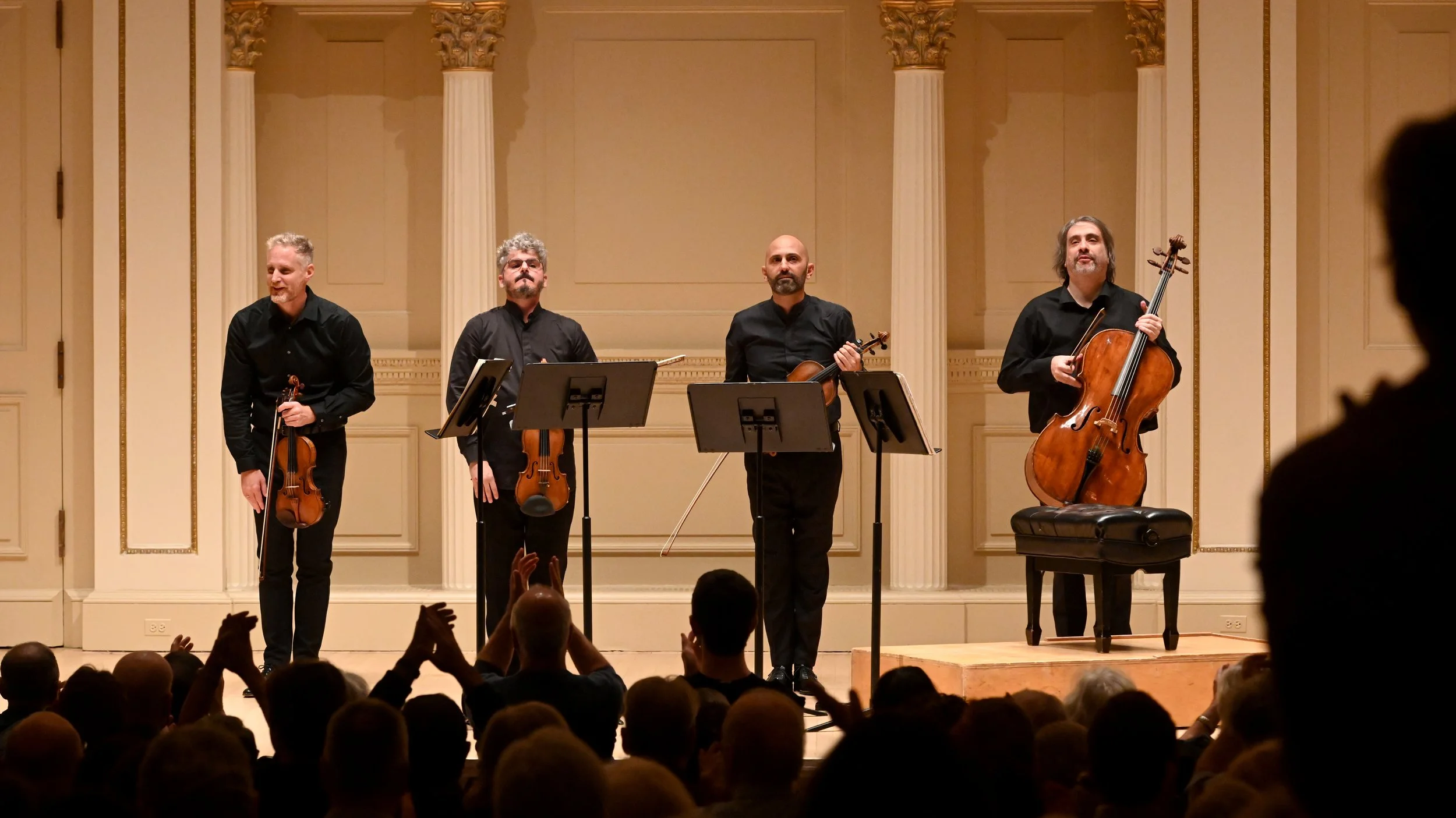REVIEW: Israel in Egypt at New York Philharmonic
Above photo by Chris Lee.
October 25, 2023
In the world of classical music, programming is scheduled years in advance, so nobody could have predicted conflict in the Middle East would be roiling again just as George Frideric Handel’s oratorio Israel in Egypt, which centerpieces Jewish biblical lore, received its first performance by the New York Philharmonic since 1891. Such is the genius of Jeannette Sorrell, not merely one of the leading conductors of early music in the U.S. today; she has proven a visionary leader in the building of an arts organization as founder of Apollo’s Fire, an International Baroque Orchestra based in Cleveland and Chicago.
Sorrell, having led the New York Philharmonic in Handel’s Messiah in 2021, returns with her virtuoso chorus Apollo’s Singers to make their Lincoln Center and New York Philharmonic subscription debut with her adaptation of Israel in Egypt, a three part oratorio for large orchestra, chorus, and soloists.
Jeannette Sorrell conducting the New York Philharmonic. Photo by Chris Lee.
Key to the success of Apollo’s Fire is Sorrell’s imaginative programming. The vivacious ensemble doesn’t lift a bow unless there is a story to be told, a message to be imparted, or a mood to be enriched with context. And Sorrell has a unique flair for inspiring her merry band of ornament-trilling vocalists and period instrument specialists to shape each performance into a visceral experience, a journey.
Having already tackled such Baroque dramas as Monteverdi’s L’Orfeo and Purcell’s Dido and Aeneas, as well as ample experience bringing Bach’s St. John Passion and Handel’s Messiah to audiences far and wide, Israel in Egypt was an inspired next challenge for Sorrell in her mission to engage with audiences.
The composer of the “Hallelujah” chorus could certainly produce music of celebration like no one else. But, for it to pay off, you need the proper build-up. Historically considered a flop — Israel in Egypt premiered in 1739 at the King’s Theatre in London’s West End (now home, albeit since rebuilt, to The Phantom of the Opera) — Handel benefits from a little help keeping a modern audience’s attention. So, Sorrell has made some judicious cuts and injects vivacious drama into the musicality, bringing the piece in under 2 hours, with gratifying narrative architecture and shifts of emotion.
An oratorio in three parts (the first here restored after being jettisoned by Handel following the initial sour reception), it begins with “Lamentation of the Israelites for the Death of Joseph,” followed by “Exodus,” intermission, then “Moses’s Song,” an extended series of celebratory choruses and arias. “Exodus” is the most interesting section of the oratorio, in which Handel uses vivid tone painting to depict various biblical events, such as the pestilence of frogs, a hailstorm, the drying of the Red Sea, and torrential floods.
Jeannette Sorrell conducting the New York Philharmonic. Photo by Chris Lee.
The chorus does most of the heavy lifting, especially in the lyrical first act, and the bombastic third. But, the Philharmonic musicians contributed beautifully to the proceedings, gracefully adapting their modernistic ways to Sorrell’s period performance approach, shorn of vibrato. Oboist Robert Botti and Christopher Martin, on trumpet, for example, gamely took the foreground with a jaunty duet, perfectly in tune. Principal associate concertmaster Sheryl Staples stepped in as concertmaster, and superb soloist and collaborator, as well.
The visiting chorus sounded splendid, intonation and balance flawless, and the vocal soloists were excellent. Soprano Amanda Forsythe possesses an instrument with the sweetness of tone and technical agility of a flute or a violin, and countertenor Cody Bowers brought an actor’s instincts and communicative warmth to the oratorio’s human drama.
Countertenor Cody Bowers and conductor Jeannette Sorrell performing Israel in Egypt. Photo by Chris Lee.
No one brings the sensibility and rhetorical flourish of the Baroque era to life with more energy and (we can only imagine) authenticity than the masterful Sorrell — she commands the air and energy in the room through the music, as if conjuring emotions and moods. While Israel in Egypt may not replace Messiah or Bach’s Passions in the audience’s hearts, it makes for a stimulating (and timely) journey to the eighteenth century, and a worthwhile stylistic detour for the New York Philharmonic.
***
The New York Philharmonic performs Israel in Egypt again Thursday, Oct 26.








